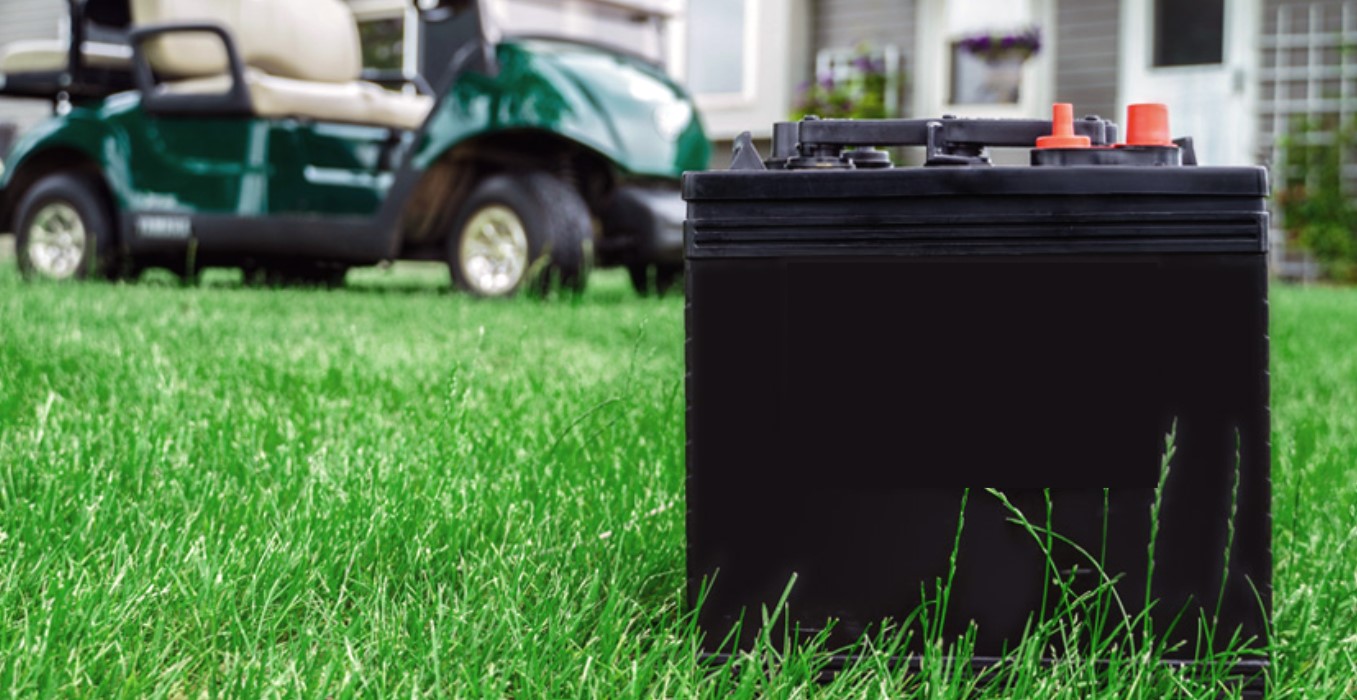The battery is the heart of your golf cart—driving its performance, efficiency, and longevity. Thanks to cutting-edge advancements, today’s batteries offer a range of innovative features designed to meet diverse needs. In this guide, our golf cart experts in Austin will walk you through the top options, explore their benefits and drawbacks, and share practical tips to help you choose the perfect battery for your cart.
Types of Golf Cart Batteries
Choosing the right type of battery starts with understanding the options available. Each battery type offers unique features, benefits, and trade-offs. It’s essential to select one that matches your golf cart’s usage and your performance expectations.
A. Lead Acid Batteries
Lead acid batteries have been a staple in the industry for decades due to their reliability and affordability. They rely on a chemical reaction between lead plates and sulfuric acid to store and release energy.
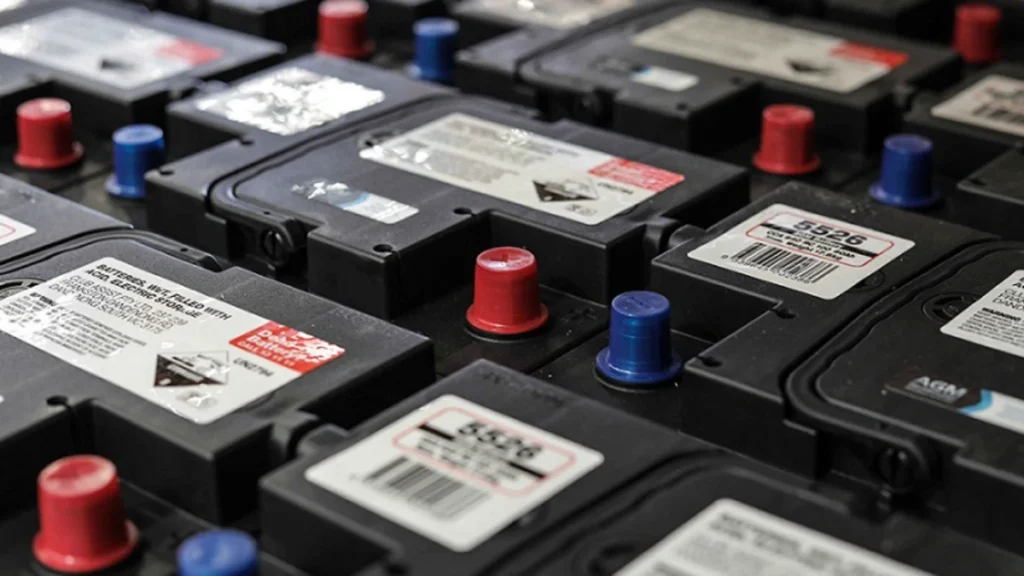
Pros
- Cost-effective and widely available, making them an affordable option for most users.
- Proven performance in various applications, ensuring reliable operation over time.
Cons
- Require regular lead acid battery maintenance, such as refilling water and cleaning terminals, which can be time-consuming.
- Shorter lifespan compared to newer battery technologies, often requiring more frequent replacements.
- Heavy, which can impact the cart’s efficiency and maneuverability.
Best for: Budget-conscious users or those with carts primarily used for short and infrequent trips.
B. AGM (Absorbent Glass Mat) Batteries
AGM batteries are an upgraded version of lead acid batteries, offering a sealed design that makes them maintenance-free.
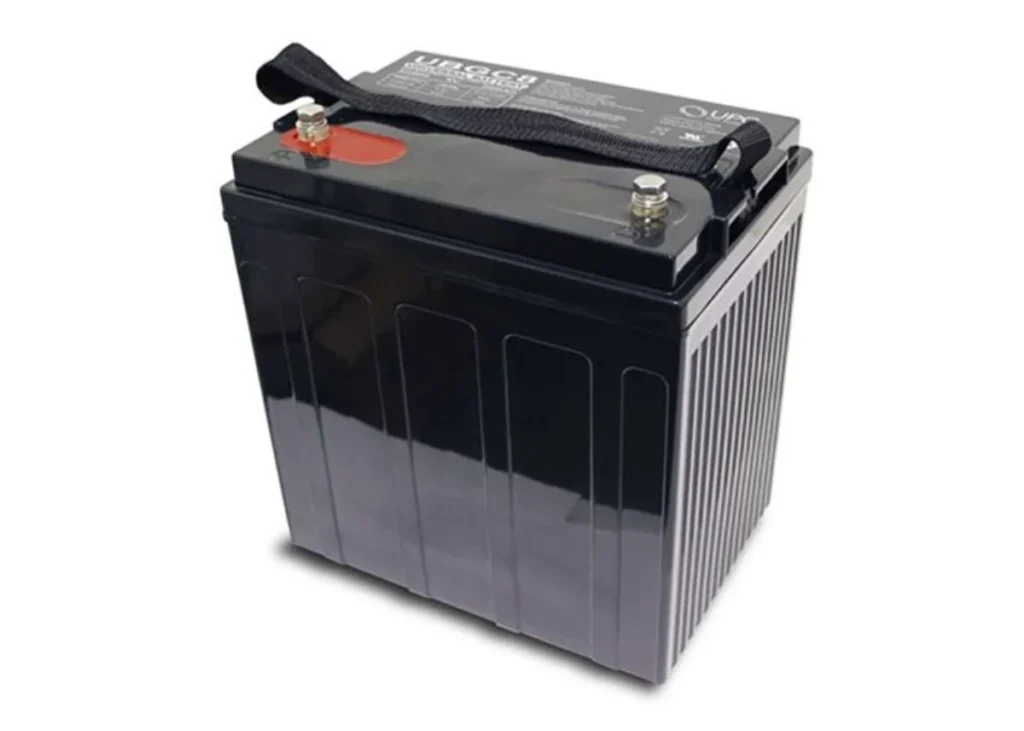
Pros
- No need for regular upkeep, saving you time and effort in maintenance.
- Longer lifespan compared to traditional lead acid batteries, providing better long-term value.
- Better resistance to vibration and shock, making them suitable for rough or uneven terrains.
Cons
- Higher upfront cost, which may be a barrier for budget-conscious buyers.
- Heavier than other modern battery types, potentially affecting performance in lightweight carts.
Best for: Users seeking durability and low-maintenance options for moderately heavy use.
C. Lithium-Ion Batteries
Lithium-ion batteries are celebrated for their high energy density and lightweight design. These batteries are revolutionizing how golf carts operate, providing exceptional performance and efficiency.
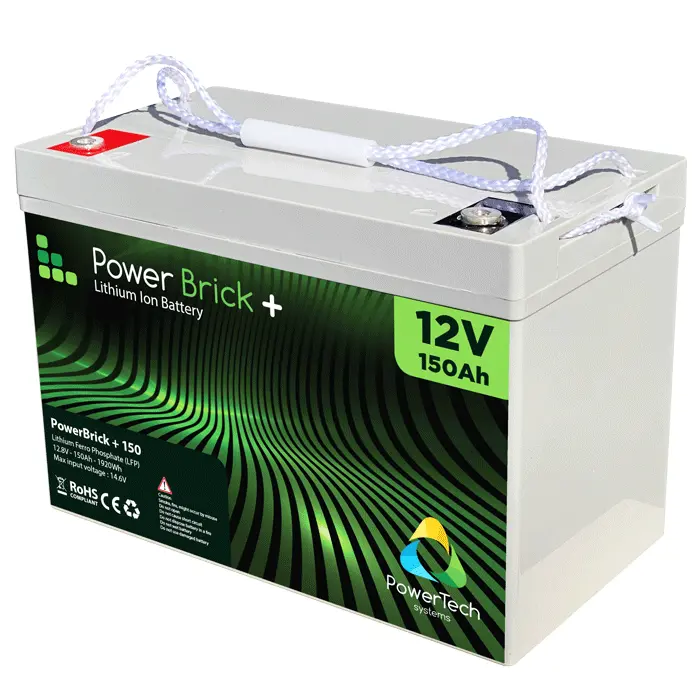
Pros
- Significantly longer lifespan (up to 10 years or more), reducing the need for frequent replacements.
- Lightweight, improving the cart’s maneuverability and overall efficiency.
- Faster charging times, with 80% charge achieved in as little as 30 minutes, minimizing downtime.
- Consistent power output throughout the discharge cycle, ensuring a steady and reliable ride.
- Completely maintenance-free, eliminating the hassle of regular upkeep.
Cons
- Higher initial cost.
- May require modifications to the cart’s electrical system, which could add to the initial expense.
Best for: Performance enthusiasts and frequent users looking for the latest in battery technology.
D. Lithium Iron Phosphate (LiFePO₄) Batteries
A subtype of lithium-ion batteries, LiFePO₄ batteries combine safety and longevity, making them increasingly popular.

Pros
- Extremely long lifespan, capable of thousands of charge cycles, making them a durable choice.
- Environmentally friendly, containing no toxic heavy metals and aligning with sustainability goals.
- Enhanced safety due to thermal stability, reducing the risk of overheating or fire hazards.
Cons
- Slightly lower energy density compared to standard lithium-ion batteries, which may affect performance in high-demand scenarios.
- Higher upfront investment, though offset by their extended lifespan and durability.
Best for: Performance enthusiasts and frequent users looking for the latest in battery technology.
Comparing Lead Acid and Lithium Batteries
As lithium technology becomes more accessible, comparing it to traditional lead acid batteries can help you understand which option best suits your needs. Here’s a side-by-side comparison of key features to guide your decision-making:
Feature | Lead Acid | Lithium |
Initial Cost | Low | High |
Lifespan | 3-5 years | 8-10+ years |
Maintenance | Frequent | None |
Weight | Heavy | Lightweight |
Charging Speed | Slow | Fast |
Power Consistency | Diminishes over time | Consistent |
Key Considerations for Choosing the Right Battery
Before committing to a battery type, it’s important to consider factors like usage patterns, maintenance preferences, budget, and environmental impact. Here, we outline the essential considerations to ensure your choice aligns with your requirements.
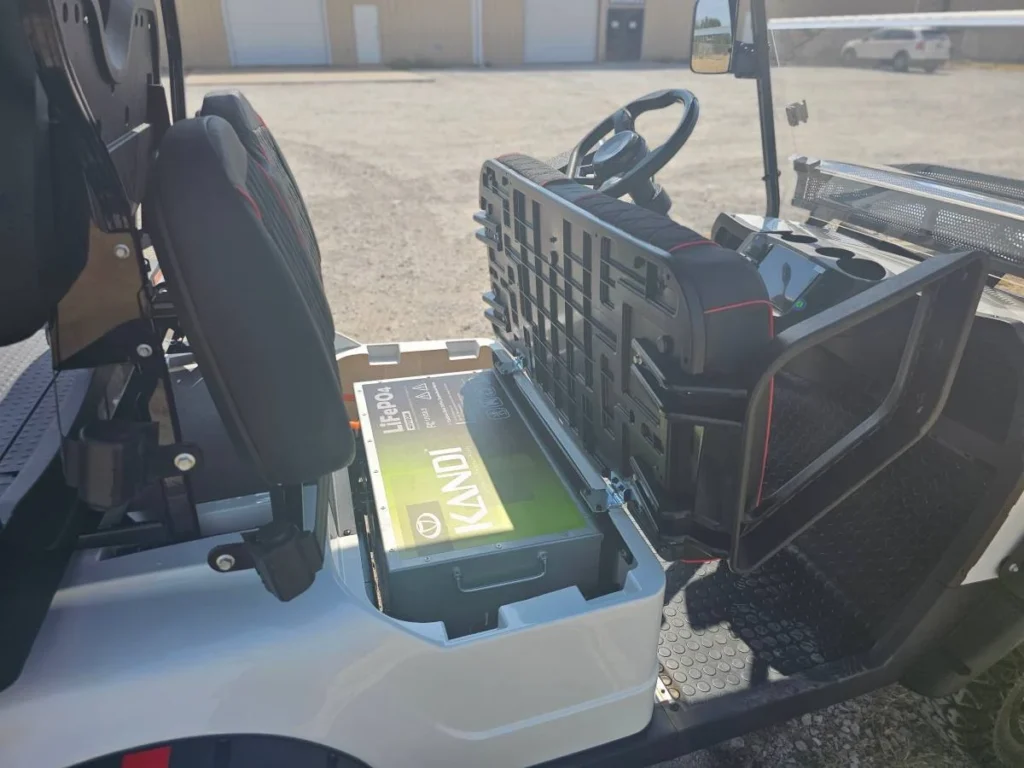
One-Stop Golf Cart Solutions in Austin & Nearby
A. Usage Patterns
- Frequent Use: If you use your golf cart daily or for extended periods, investing in a lithium battery is worth the long-term savings.
- Occasional Use: AGM or lead acid batteries can suffice for carts used sporadically.
B. Maintenance Preferences
- Lead acid batteries require regular checks and upkeep, making them less ideal for those seeking convenience.
- Lithium and AGM batteries are maintenance-free, saving time and effort.
C. Budget
- Initial cost plays a significant role in decision-making. While lead acid batteries are cheaper upfront, lithium batteries’ extended lifespan and superior performance often result in better overall value.
D. Environmental Considerations
- Lithium and AGM batteries have a lower environmental impact compared to lead acid options, which contain toxic materials and require proper disposal.
E. Compatibility
- Ensure the chosen battery type matches your cart’s electrical system. Upgrading to lithium might require adjustments to the charger or wiring.
Why You Should Upgrade to Lithium Batteries
Lithium batteries are revolutionizing the golf cart industry with their unmatched performance and longevity. Here are some compelling reasons to make the switch and transform your golf cart experience:
- Extended Lifespan: Lasting up to three times longer than lead acid batteries, lithium batteries reduce replacement frequency.
- Improved Performance: Lightweight design enhances speed and handling, while consistent power output ensures a smoother ride.
- Energy Efficiency: Faster charging and better energy utilization lower operating costs over time.
- Eco-Friendliness: Lithium batteries’ non-toxic composition aligns with sustainability goals.
- Zero Maintenance: Forget about checking water levels or cleaning terminals.
Practical Tips for Battery Maintenance
Proper battery maintenance not only extends the lifespan of your golf cart battery but also ensures optimal performance. Here are some actionable tips for caring for your battery, regardless of the type you choose:
- Avoid Deep Discharges: Recharging before the battery is fully drained prevents strain.
- Clean Connections: For lead acid batteries, keep terminals clean and corrosion-free.
- Store Properly: Avoid extreme temperatures during storage, as they can damage the battery.
- Use the Right Charger: Match the charger to the battery type to prevent overcharging or undercharging.
Choosing the Right Golf Cart Battery
Choosing the right golf cart battery is an investment in your cart’s performance and your peace of mind. While traditional lead acid batteries remain a budget-friendly option, lithium and lithium iron phosphate batteries offer unmatched benefits in terms of lifespan, efficiency, and maintenance-free operation. By evaluating your needs, usage patterns, and budget, you can select a battery that ensures your golf cart runs smoothly for years to come.
Trust Golf Carts of ATX for All Your Golf Cart Needs
At Golf Carts of ATX, we specialize in helping you find the best battery solutions for your golf cart. Whether you’re looking to upgrade your golf cart battery to the latest lithium technology or need guidance on maintaining your current setup, our team of experts is here to help. As a reputable golf cart dealer in Austin, we offer a selection of batteries tailored to different needs and budgets, so you can get the most out of your golf cart.
We also offer comprehensive golf cart mobile repair services to keep your cart running smoothly, no matter which battery type you choose. Contact us now for reliable products, expert advice, and unparalleled customer service!
Frequently Asked Questions
How often should I replace my golf cart battery?
The replacement frequency depends on the battery type and usage. Lead acid batteries typically last 3-5 years, while lithium batteries can last 8-10+ years with proper care.
Can I upgrade my existing golf cart to lithium batteries?
Yes, most golf carts can be upgraded to lithium batteries, but some modifications to the electrical system may be required. Consult with a professional for guidance.
What is the best way to store golf cart batteries during the off-season?
Store batteries in a cool, dry place, and ensure they are fully charged before storage. For lead acid batteries, check the water levels periodically.
Are lithium batteries worth the higher upfront cost?
While lithium batteries have a higher initial cost, their longer lifespan, reduced maintenance, and superior performance make them a cost-effective choice in the long run.
How do I know if my golf cart’s battery needs replacement?
Signs include reduced run time, slow charging, or difficulty maintaining a charge. If you experience these issues, it may be time for a replacement.
Ready for hassle-free golf cart repair? Reach out today and get back on the green in no time!

